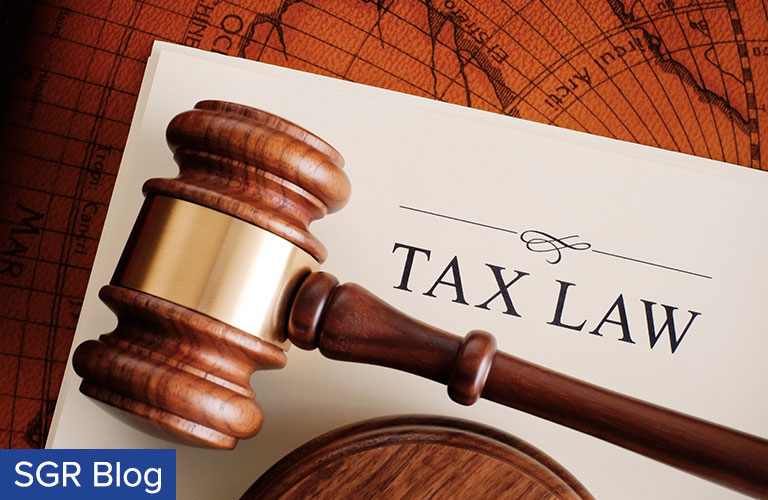
M&A activity set a new record in 2021, reaching $5.8 billion globally.[1] After such a heated year of sales, mergers, and financings, those investors who saw taxable gains must now account for the inevitable tax bills. One alternative is to roll over these otherwise taxable gains in opportunity zone funds.
Opportunity zone funds (“OZ funds”) are investment vehicles created under the 2017 Tax Cuts and Jobs Act. OZ funds were created to incentivize the making of investments in distressed economic areas. Provided an OZ fund meets numerous requirements and conditions, investors can obtain two significant tax benefits.
First, the cash invested in an OZ fund will, in general, offset an investor’s otherwise taxable gains. However, any such gains are deferred, not eliminated, and will ultimately be recognized on December 31, 2026. (For investments made during 2021, it was also possible to eliminate part of this gain provided certain holding period rules were met.)
Second, if an OZ fund holds a qualifying investment for at least ten years, then any gain on that investment (not the rollover gain) may be exempt from tax.
However, investors seeking to defer tax on 2021 transactions must satisfy the gain and timing rules.
The Gain Rule
Under the OZ fund rules, an investor can only defer tax on certain types of gains. Generally, the gains that qualify are long-term capital gains, short-term capital gains, and so-called “1231” gains. The latter, generally, are gains from business property other than inventory. Gains that are re-characterized as ordinary income under the depreciation recapture rules are not eligible for deferral under the OZ fund rules.
The Timing Rule
An investor with qualifying gains may be able to defer taxes on those gains if he or she meets the timing rules for investing in an OZ fund.
Generally, the amount of the gain must be invested in the OZ fund within 180 days. This 180-day period starts on (and includes) the date the gain is recognized for income tax purposes.
However, there are at least two situations in which this deadline can be extended.
A. Partnership Gains
If a partnership recognizes gain, that gain is generally taxed to its owners. In order to defer the tax, the partnership must rollover the gain into an OZ fund within the 180-day period. However, the partners can do so individually if the partnership does not elect to invest in an OZ fund. In that case, each partner’s 180-day period will begin on the last day of the partnership’s tax year.
Example: Holdco is an LLC taxed as a partnership. Holdco is a calendar-year partnership. Jane has a 10% interest in Holdco. Among other investment assets, Holdco owns a stock interest in a private tech company. On June 1, 2021, that tech company was sold in a taxable transaction, and Holdco recognized a gain on the sale. Jane’s share of the gain is $2 million. Holdco does not elect to roll over the gain into an OZ fund. Accordingly, Jane’s 180-day period starts on December 31, 2021, not June 1, 2021. This means Jane will have until late June of 2022 to roll over her share of the gain into an OZ fund and defer her 2021 tax on that gain.
B. Installment Sales
In some cases, a transaction may give rise to installment sale treatment. Generally, if a sale occurs in one year and additional consideration is received in a later year, the transaction may qualify as an installment sale. The installment sale rules permit taxpayers to spread the total gain from an installment sale over the payments as they are received. Because this creates recognized gain in at least two different tax years, the OZ fund rules give taxpayers two choices on how to treat this gain.
One approach is to apply the 180-day period as starting with respect to each day on which payments are received. Example: John sells stock of a private company to a private equity group on January 1, 2021. The buyer agrees to pay $2 million, half on the sale date and half due one year later. (To simplify the numbers, assume that the buyer also agrees to pay a market interest on the second payment. The interest is excluded from the gain calculation and cannot be deferred under the OZ fund rules.) Assume John’s basis in the stock is zero, so his total gain is $2 million. Under the installment sale rules, John has $1 million of gain on January 1, 2021, and another $1 million of gain on January 1, 2022. The OZ fund rules permit John to bifurcate these gain amounts and apply a separate 180-day period to each. Accordingly, John would be required to rollover the first gain by late June of 2021 and the second gain by late June of 2022.
An alternative approach is to treat all the installment gain as occurring on the last day of the year in which the sale occurs. Under the same facts, John would have until late June of 2022 to roll over all $2 million of gain and defer tax on both the 2021 and 2022 payments. This alternative rule is particularly helpful in situations where the first payment constitutes substantially all the consideration, and the follow-on payments are relatively small. Under those fact patterns, the alternative approach could add as much as a year to the applicable deadline for investing in an OZ fund.
Because both approaches are generally helpful to sellers, it can be critical to evaluate whether a transaction qualifies for installment sale treatment. For example, most M&A transactions involve escrows, holdbacks, and/or earn-outs, which may cause a transaction to be classified as an installment sale.
For more information, please contact Joseph Mandarino.
[1] https://www.reuters.com/markets/us/global-ma-volumes-hit-record-high-2021-breach-5-trillion-first-time-2021-12-31/#:~:text=Global%20M%26A%20volumes%20topped%20%245,year%20earlier%2C%20according%20to%20Refinitiv.

